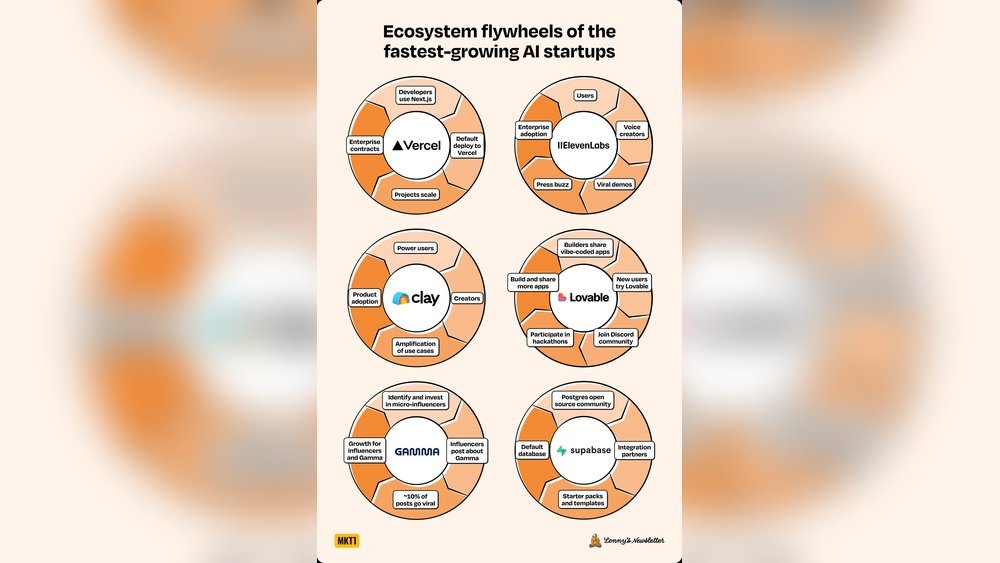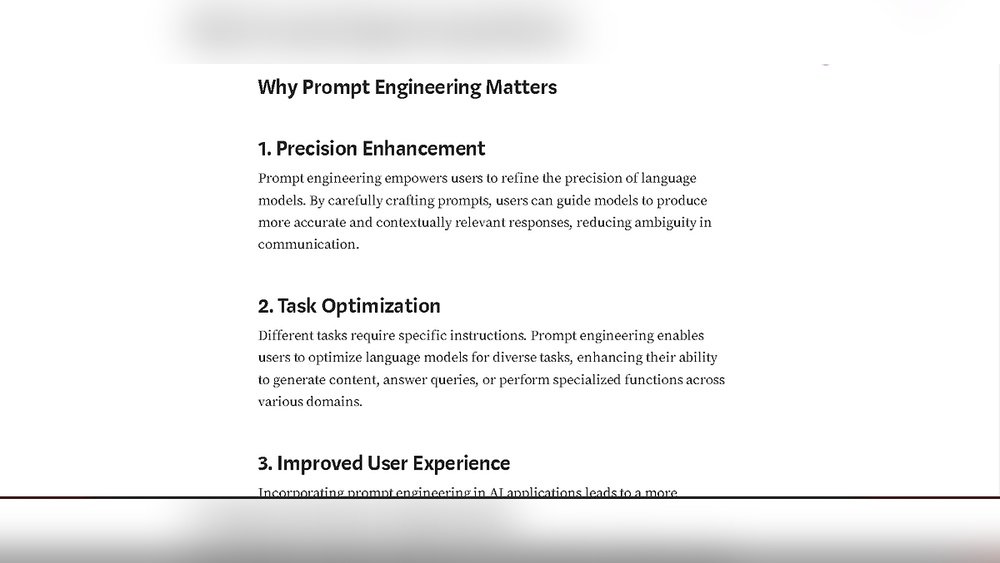Are you a startup looking to transform your vision into reality? Custom Software Development for Startups might be your golden ticket.
With tailored solutions, you can address your unique challenges, streamline operations, and set yourself apart in the competitive market. Imagine having software that grows with your business, adapting to your evolving needs, and empowering you to achieve your goals faster.
By understanding your specific requirements, custom software can enhance efficiency, boost productivity, and ultimately drive success. Dive into this article to explore how custom software development for startups can be the key to unlocking your startup’s full potential.

Credit: tsttechnology.io
Benefits Of Custom Software
Custom software tailors solutions to fit startup needs precisely. It enhances efficiency by addressing specific requirements, reducing unnecessary features. Startups gain flexibility, adapting quickly to market changes for sustained growth.
When starting a business, selecting the right software is crucial. Custom software development offers a unique path tailored specifically for your startup’s needs. Unlike off-the-shelf solutions, custom software is designed to align perfectly with your vision. This personalized approach can be a game-changer in several ways, providing a competitive edge and setting a strong foundation for future success.
Scalability For Future Growth
As a startup, rapid changes are inevitable. You might start small, but the goal is to grow. Custom software can scale seamlessly with your business. Imagine adding new features without the hassle of switching systems entirely. With custom software, your technology grows as you do, ensuring that you’re never held back by limitations. It’s like having a tailored suit that adjusts as you get more successful.
Enhanced Security Features
Security is non-negotiable. Custom software allows you to design security measures that address your specific risks. Unlike generic solutions, custom software lets you build robust defenses right into the core of your application. You can choose the level of encryption and authentication that suits your needs. How secure is your current software? With a custom solution, you can rest assured, knowing that your data is protected against threats.
Tailored User Experience
Your users deserve the best experience possible. Custom software ensures that every feature and function is designed with your users in mind. Unlike off-the-shelf products, you have the freedom to create intuitive interfaces and streamlined processes that fit your audience perfectly. Think about the last time you used an app that felt clunky. With custom software, you have the power to eliminate those frustrations and delight your users with every interaction.
Custom software is more than just a tool; it’s a strategic investment in your startup’s future. It adapts, secures, and enhances every aspect of your business, providing you with the right platform to thrive. How will you leverage this powerful asset to propel your startup forward?

Credit: prakashinfotech.com
Identifying Startup Needs
Identifying startup needs is a vital step in software development. A startup’s journey begins with understanding its unique requirements. This process ensures the software aligns with the business vision. Tailored solutions can drive growth and efficiency.
Analyzing Business Goals
Startups need clear business goals. These goals guide software development. Understanding them helps create a focused strategy. It ensures the software serves its purpose. A thorough analysis includes market research. This defines the target audience and their needs. Consider competitor analysis too. It offers insights into industry standards.
Prioritizing Features
Not all features are equal. Identify which features are essential first. These should align with core business objectives. A feature priority list helps manage resources. It focuses efforts on what matters most. This approach avoids overwhelming users with unnecessary options. It also ensures a smoother user experience.
Budget Considerations
Budget plays a crucial role in development. Determine available resources for the project. This includes financial and human resources. A realistic budget plan avoids unexpected costs. It ensures development stays on track. Early budget planning provides clarity and confidence in the project’s success.
Choosing The Right Development Team
Choosing the right development team is crucial for startup success. A skilled team can bring your software idea to life. The right team understands your vision and can work within your budget. This decision impacts your startup’s future. This section explores key aspects of choosing the right development team.
In-house Vs. Outsourcing
Startups often debate between in-house and outsourcing. In-house teams work closely with your core team. They understand your company culture. They are available for immediate feedback. But, hiring an in-house team can be costly. Training and salaries add up. Outsourcing offers a flexible solution. You can choose skilled developers from anywhere. Outsourcing companies handle recruitment and training. This can save time and money. Consider your startup’s needs and budget before deciding.
Evaluating Team Expertise
Check the technical skills of the team. Assess their experience with similar projects. A team with relevant experience can navigate challenges better. Look for developers who understand your industry. This ensures they know what your software needs. Ask about their problem-solving skills. A team that adapts to new challenges is valuable. Ensure they keep up with technology trends. This knowledge helps them build modern, efficient software.
Checking Portfolio And References
A team’s portfolio tells a lot. Review their past projects. Look for projects similar to yours. This shows their capability to handle your needs. Contact their previous clients. Ask about their experience working with the team. Did the team meet deadlines? Were they easy to communicate with? These insights help you make an informed decision. A strong portfolio and positive references indicate a reliable team.
Development Process Essentials
Custom software development for startups focuses on creating solutions that fit unique business needs. It includes planning, designing, and coding tailored applications. This process helps startups grow by offering scalable and efficient tools.
In the fast-paced world, custom software development for startups stands as a crucial pillar. Understanding the development process is essential for success. Startups need tailored solutions to meet unique challenges. The development process involves several key stages. Each stage contributes to creating effective software.
Agile Methodology
Agile methodology ensures flexibility and efficiency. It breaks the project into small, manageable parts. Teams work on these parts in short cycles. This approach allows for rapid adjustments. It focuses on collaboration and continuous improvement. Agile helps teams respond to changes quickly. This is vital in the dynamic startup environment.
Prototyping And MVP Development
Prototyping helps visualize ideas before full development. It provides a basic version of the software. This step is crucial for gathering early feedback. An MVP, or Minimum Viable Product, is part of this phase. It includes only essential features. An MVP allows startups to test their idea in the market. It saves time and resources.
Feedback And Iteration
Feedback is a vital component of the development process. It guides the improvement of the software. Startups should seek feedback from users regularly. This helps identify issues and areas for enhancement. Iteration involves making changes based on feedback. It ensures the software meets user needs effectively. Continuous iteration leads to a refined product.
Integrating With Existing Systems
Integrating custom software with existing systems is crucial for startups. This process ensures the new software works seamlessly with current operations. Smooth integration can enhance productivity and minimize disruptions. It is vital for startups to focus on compatibility, data migration, and API integrations.
Ensuring Compatibility
Compatibility is key for successful integration. The new software must align with existing systems. Check for any conflicts between the systems. Address these conflicts to prevent operational issues. Regular updates and maintenance can improve compatibility.
Data Migration Strategies
Data migration involves transferring information from old systems. This process must be secure and accurate. Develop a clear strategy for migrating data. Use reliable tools and techniques to ensure data integrity. Regular backups safeguard against data loss.
Api And Third-party Integrations
APIs connect software with other applications. They enable communication between different systems. Identify the APIs that suit your needs best. Test them to ensure they work correctly. Third-party integrations offer additional functionalities. Choose integrations that complement your software and business goals.
Testing And Quality Assurance
Testing and Quality Assurance (QA) are crucial for custom software development. Startups need robust and reliable software to thrive. Testing helps identify bugs and issues early. Quality assurance ensures the software meets user expectations. Both processes are vital for smooth operations.
Automated Vs. Manual Testing
Automated testing uses tools to run tests quickly. It saves time and reduces human error. Ideal for repetitive tasks, it speeds up the testing process. Manual testing involves human testers. They check the software’s functionality and user experience. Manual testing is better for complex scenarios. Combining both methods offers comprehensive coverage.
User Acceptance Testing
User Acceptance Testing (UAT) verifies the software meets user needs. Real users test the software in real-world scenarios. They provide feedback on usability and functionality. UAT is crucial to ensure the software meets user expectations. It helps identify issues that may not appear during regular testing.
Performance And Load Testing
Performance testing checks how the software performs under different conditions. It ensures the software runs smoothly and efficiently. Load testing simulates heavy usage to test software limits. It identifies potential bottlenecks and areas for improvement. These tests help maintain software reliability and speed.
Launching And Scaling
Custom software development for startups to launch and grow effectively. It offers tailored solutions to meet unique business needs. This approach enhances efficiency and supports scalable growth.
Launching a startup is an exhilarating journey filled with anticipation and challenges. One of the critical phases in this journey is launching and scaling your custom software. This stage can make or break your startup’s success. You have spent time and resources developing a software solution tailored to your vision. Now, it’s time to introduce it to the world and ensure it grows alongside your business. Let’s explore some practical insights into making this process seamless and efficient.
Deployment Best Practices
Deploying your software isn’t just about pressing a button. It’s about ensuring that your product is ready for the real world. Start by testing in a controlled environment to identify potential issues.
Use automation tools to streamline the deployment process. Automation minimizes human error and speeds up the launch.
Consider rolling deployments. This method allows you to release your software in stages, reducing risk and providing room to fix issues quickly.
Monitoring And Analytics
Once your software is live, monitoring its performance is crucial. Use analytics tools to track user interactions and system performance.
Set up alerts for critical metrics. This ensures you are aware of any potential issues before they escalate.
Regularly review analytics data to spot trends and make informed decisions about updates and improvements. This proactive approach can significantly enhance user satisfaction.
Handling User Feedback
Engage with your users actively. Encourage them to provide feedback and make it easy for them to do so.
Use the feedback to drive your development roadmap. Addressing user needs can lead to increased satisfaction and loyalty.
Communicate changes based on feedback transparently. Users appreciate knowing their input is valued and acted upon.
Launching and scaling your custom software requires attention to detail and a willingness to adapt. What steps will you take today to ensure your software not only launches successfully but also scales effectively with your business?
Cost Management Strategies
Cost management is crucial for venturing into custom software development for startups. Effective strategies help control expenses and ensure a balanced budget. This section delves into key strategies that startups can employ to manage costs efficiently.
Estimating Total Cost Of Ownership
Startups must calculate the total cost of ownership. This includes development, maintenance, and operational expenses. Accurate estimation prevents unexpected financial burdens. Break down costs into tangible categories. Consider software, hardware, and personnel expenses. This approach provides a clear financial roadmap.
Funding And Investment Options
Securing adequate funding is vital for custom software projects. Explore various investment options. Crowdfunding, venture capital, and angel investors are potential sources. Each option offers distinct benefits. Match the funding source to your startup’s needs. Ensure you have enough capital to support the software journey.
Long-term Maintenance Plans
Plan for long-term software maintenance. Regular updates and bug fixes are essential. Neglecting maintenance can lead to costly repairs. Allocate a budget for ongoing support. This ensures your software remains functional and efficient. Long-term planning saves resources and enhances software reliability.
Case Studies
Case studies offer real-world insights into custom software development for startups. They reveal successes and lessons from failures. Each startup’s journey is unique, providing valuable lessons for entrepreneurs.
Successful Startup Examples
Some startups thrived with custom software. One example is Dropbox. They created a simple file-sharing platform. This software addressed a common problem. It grew rapidly due to user-friendly design. Another example is Slack. They developed a communication tool tailored for teams. Slack’s software streamlined workplace communication. These startups highlight the power of custom solutions.
Lessons Learned From Failures
Not all startups succeed with custom software. Some face challenges due to poor planning. An example is a startup that launched without market research. Their software didn’t meet user needs. They learned the importance of understanding the target audience. Another failure involved budgeting issues. The startup overspent on development. They realized the need for financial discipline. These failures offer important lessons for new ventures.

Credit: medium.com
Future Trends In Custom Software
Emerging trends in custom software focus on enhancing startup growth through tailored solutions. Startups benefit from personalized software that adapts to unique needs. Flexibility and scalability are vital as businesses evolve.
The world of custom software development for startups is evolving rapidly. As technology advances, startups must stay ahead of the curve to remain competitive. Understanding future trends can help you make informed decisions about your software needs. Let’s explore some key areas shaping the future of custom software development for startups.
AI and Machine Learning Integration
AI and machine learning are becoming essential in custom software. They offer startups unique opportunities to improve efficiency and customer experience. Imagine software that learns user behavior and adapts, offering personalized recommendations.
Startups can also use AI for predictive analytics, helping anticipate market trends or customer needs. This can lead to more strategic decisions. Have you thought about how AI could transform your business operations?
Blockchain Applications
Blockchain is not just for cryptocurrencies. Its potential in custom software is immense. Startups can use blockchain for secure transactions, safeguarding data from tampering.
Consider a startup focused on supply chain management. Blockchain can provide transparency and traceability, enhancing trust with partners. Are you ready to embrace blockchain for its security and transparency?
Remote And Cloud Solutions
The rise of remote work has highlighted the need for cloud-based solutions. Startups benefit from the flexibility and scalability offered by the cloud. You can access your software from anywhere, facilitating remote collaboration.
Cloud solutions also reduce infrastructure costs, allowing startups to allocate resources elsewhere. Have you considered how cloud solutions could streamline your business processes?
As you navigate the landscape of custom software development for startups, keeping these trends in mind will ensure your startup remains agile and competitive. How will you integrate these trends into your strategy?
Frequently Asked Questions
What Is Custom Software Development For Startups?
Custom software development for startups involves creating tailored software solutions to meet specific business needs. It helps startups improve efficiency, scalability, and competitiveness. By addressing unique requirements, custom software can provide a competitive edge and streamline operations, ensuring startups can adapt quickly to changing market conditions.
Why Choose Custom Software Over Off-the-shelf Solutions?
Custom software offers unique benefits tailored to your startup’s specific needs. It ensures scalability, flexibility, and integration with existing systems. Off-the-shelf solutions may lack necessary features or require costly modifications. Custom software enhances user experience, optimizes workflows, and supports your startup’s growth and innovation.
How Does Custom Software Benefit Startups?
Custom software benefits startups by offering tailored solutions for unique challenges. It enhances efficiency, scalability, and competitiveness. By addressing specific needs, it improves user experience and streamlines operations. Custom software also supports growth and adapts to changing market conditions, providing startups with a strategic advantage.
What Is The Cost Of Custom Software Development For Startups?
The cost of custom software development for startups varies based on complexity and features. It typically ranges from a few thousand to several hundred thousand dollars. Factors influencing cost include development time, technology stack, and team expertise. Investing in custom software ensures tailored solutions that align with your startup’s unique needs.
Conclusion
Custom software fuels startup growth. It meets specific needs efficiently. This tailored approach boosts productivity and cuts unnecessary costs. Startups gain competitive advantages with unique solutions. Investing in custom software is smart for future success. It enhances flexibility and adapts to changing demands.
With the right development team, startups can scale smoothly. This choice supports innovation and growth. Simplified processes lead to more focus on core goals. Embrace custom software to drive your startup forward. Ensure your business stays ahead in the dynamic market landscape.






